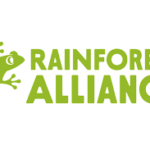About Company
The Rainforest Alliance is a global non-profit organization focused on creating a more sustainable world by using social and market forces to protect nature and improve the lives of farmers and forest communities. Here are the key details:
Overview
-
Founded: 1987
-
Founder: Daniel Katz
-
Headquarters: New York City, USA
-
Type: Non-governmental organization (NGO)
-
Website: www.rainforest-alliance.org
Mission
To create a better future for people and nature by making responsible business the new normal.
Key Focus Areas
-
Sustainable Agriculture
-
Supports farmers with training and resources to adopt environmentally and socially responsible practices.
-
Offers certification programs, notably the Rainforest Alliance Certified™ seal.
-
Works with major crops like coffee, tea, cocoa, bananas, and palm oil.
-
-
Forestry
-
Promotes responsible forest management through certification (originally with the Forest Stewardship Council).
-
Works to curb deforestation and protect biodiversity.
-
-
Climate Change
-
Helps communities adapt to climate change and mitigate emissions through sustainable land use and agroforestry.
-
-
Livelihoods
-
Improves incomes and working conditions for rural communities.
-
Encourages gender equality and the rights of Indigenous Peoples.
-
Certification & the “Green Frog” Seal
-
Products bearing the green frog seal meet rigorous environmental, social, and economic standards.
-
Commonly found on items like chocolate, tea, coffee, and bananas.
Merger with UTZ
-
In 2018, the Rainforest Alliance merged with UTZ, another sustainability certification body, to unify standards and increase global impact.
-
The merger led to a new certification program launched in 2020, integrating the best of both systems.
Impact
-
Works in over 70 countries.
-
Partners with thousands of farmers, companies, and communities.
-
Certification covers millions of hectares of farmland and forest.
The Rainforest Alliance has been actively engaged in Kenya for over three decades, promoting sustainable agriculture, enhancing farmer livelihoods, and conserving biodiversity. Here’s an overview of their key initiatives and impacts in the country:
🌱 Sustainable Agriculture & Certification
Tea Sector: Kenya’s tea industry is a significant focus for the Rainforest Alliance. They have developed a specific policy to align the Rainforest Alliance 2020 Farm Standard with the context of tea farming operations in Kenya. This policy applies to both Rainforest Alliance Farm Certificate Holders and Certification Bodies operating in the tea sector in Kenya .
Coffee Sector: In the coffee-producing highlands of Gusii, western Kenya, the Rainforest Alliance is working with smallholder farmers and local supply-chain actors to create healthy and productive farms, restore fragile ecosystems, and boost farmer incomes .
🌍 Landscape-Level Initiatives
Mount Kenya Sustainable Landscape and Livelihoods Program (MSuLLi): This program focuses on regenerative agriculture, climate resilience, and biodiversity conservation. It supports farmers in adopting sustainable practices, diversifying crops, and improving livelihoods. The Rainforest Alliance serves as a key partner by connecting coffee and tea farmer groups to companies that reward quality and innovation through premiums and better trade terms .
🔍 Certification Oversight & Compliance
The Rainforest Alliance maintains rigorous standards for certification. In 2023, suspensions were lifted on two Kenyan tea certificate holders, ekaterra Tea Kenya and James Finlay Kenya, after they implemented corrective actions to address non-conformities related to social and management criteria of the Rainforest Alliance Sustainable Agriculture Standard .
📈 Impact in East Africa
Across East Africa, the Rainforest Alliance’s certification program has reached over 1.1 million farmers, covering more than 1 million hectares of certified land. In Kenya alone, there are 774,546 hectares of certified land and 682,395 farmers under Rainforest Alliance certification .
🛠️ Certification Process in Kenya
For farmers and businesses in Kenya seeking Rainforest Alliance certification, the process involves:
-
Application: Submitting a Certification Application Form (CAF) .
-
Onsite Evaluation: Undergoing an evaluation by an authorized certification body.
-
Certification Decision: Receiving a certification decision based on compliance with the Sustainable Agriculture Standard.
-
